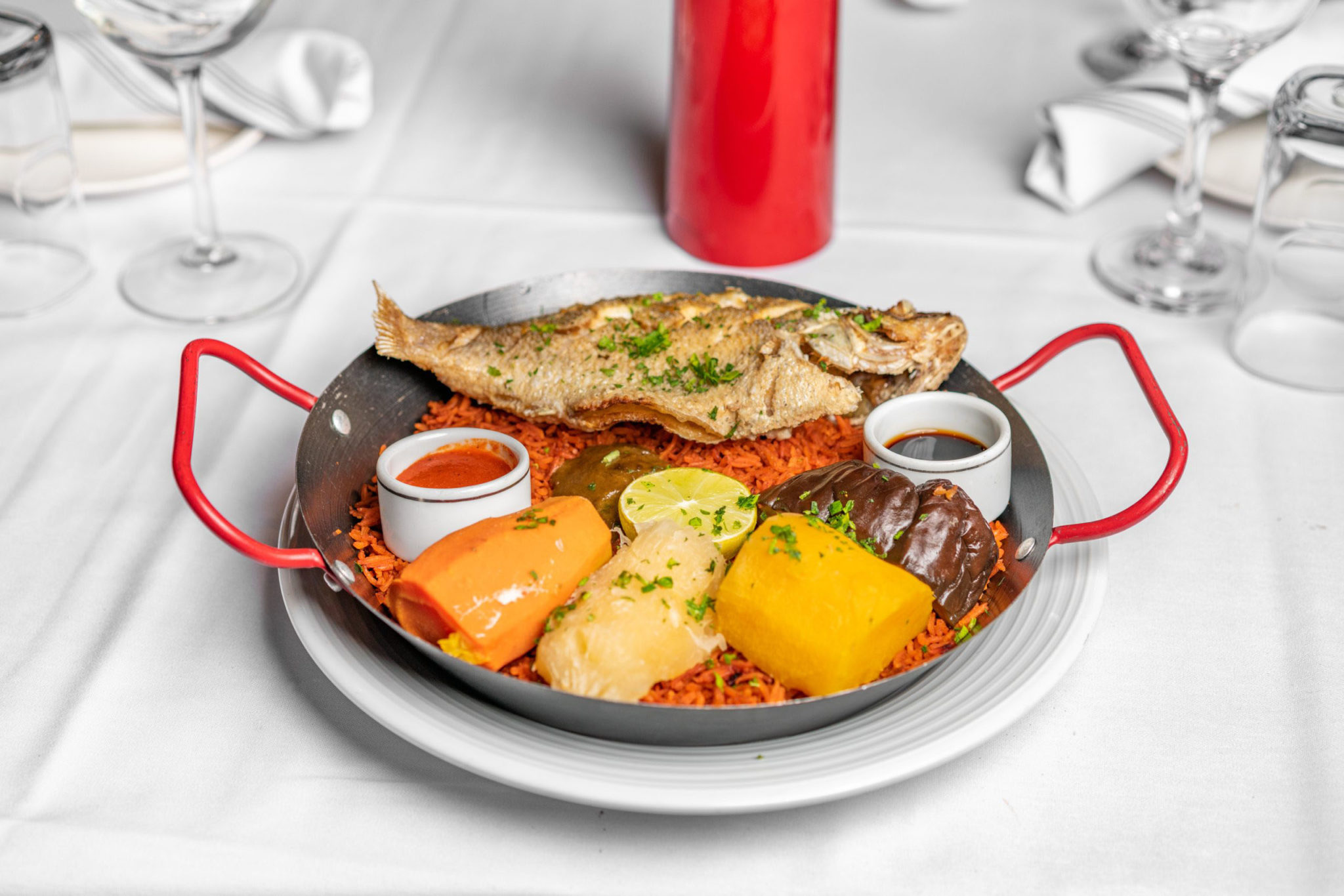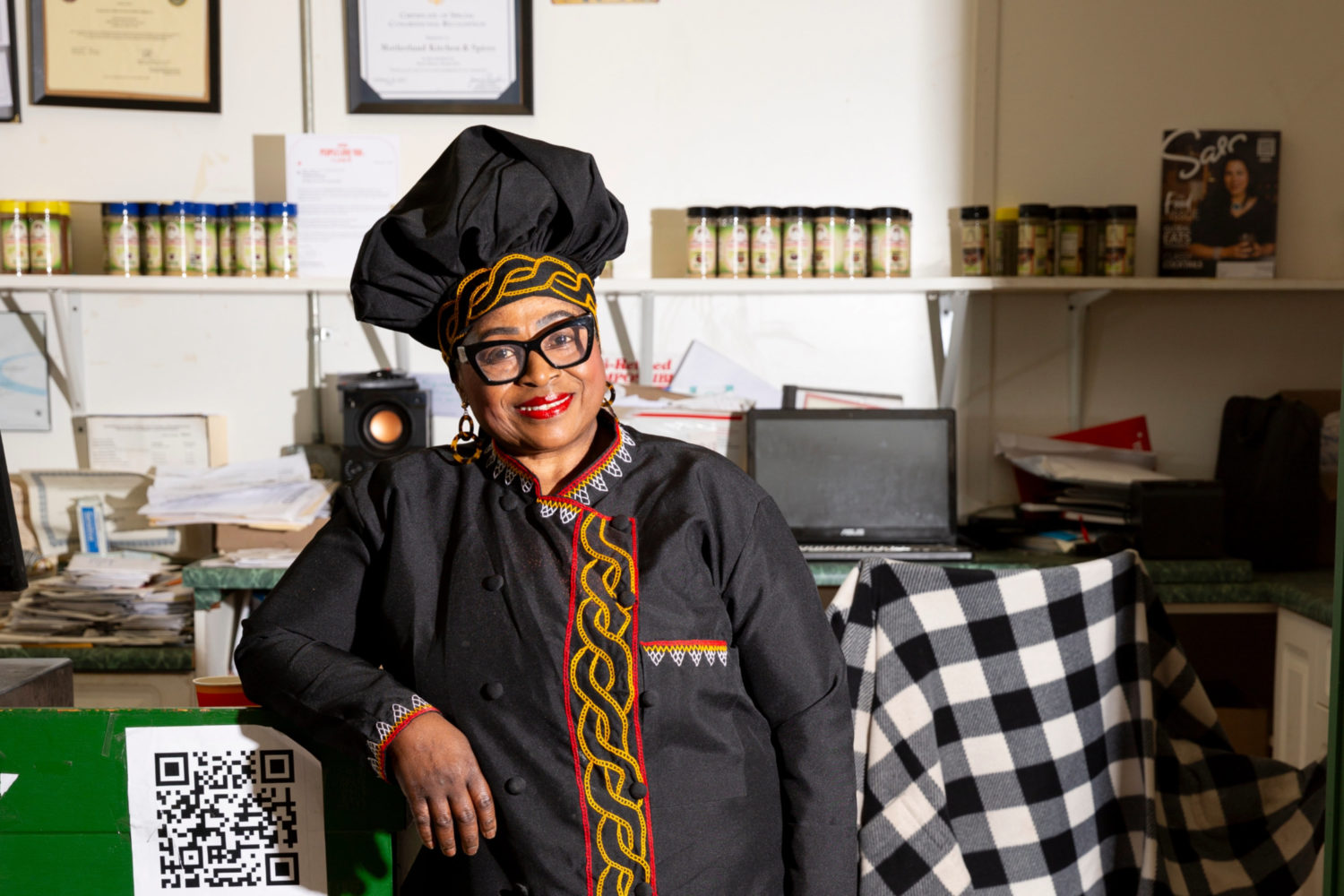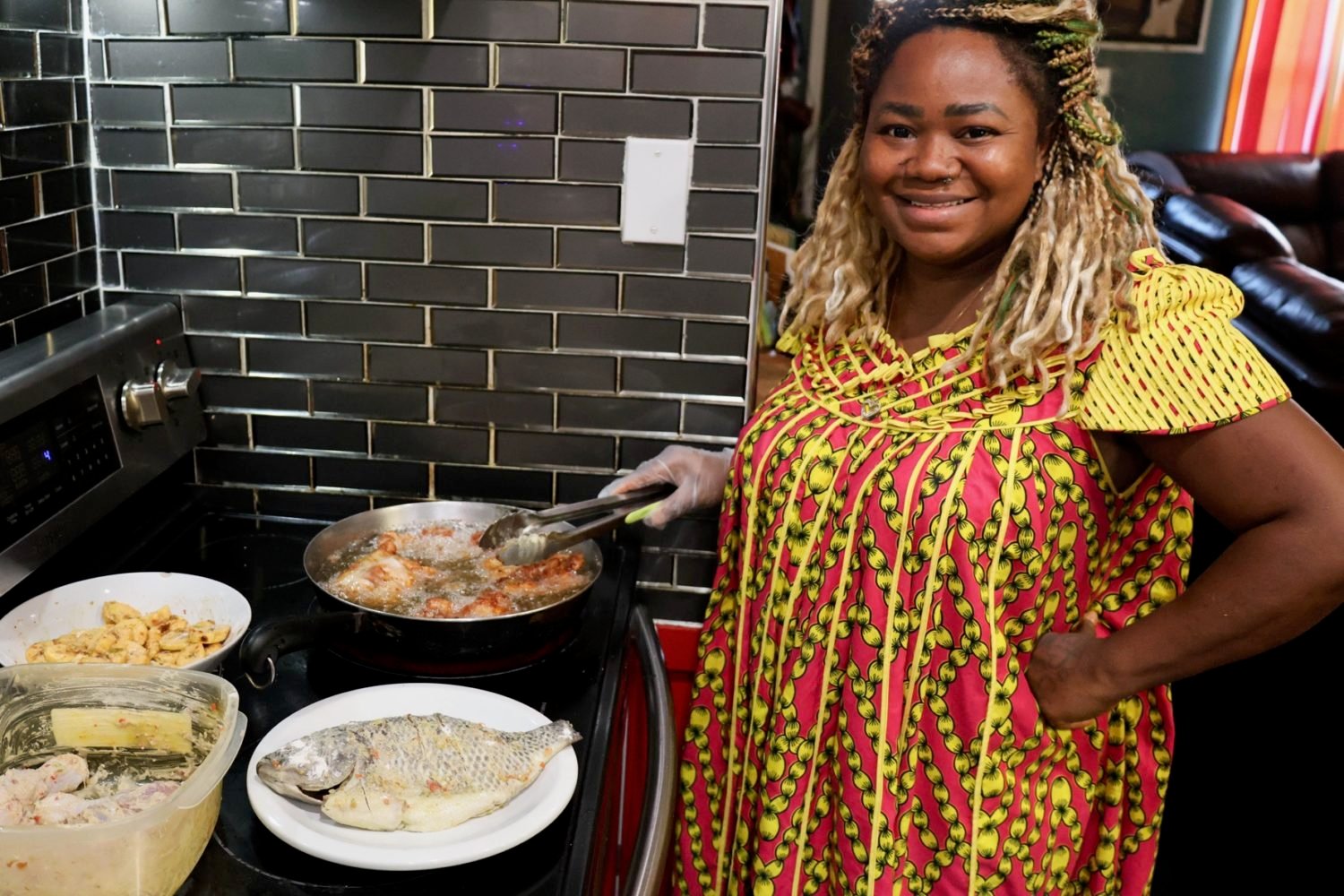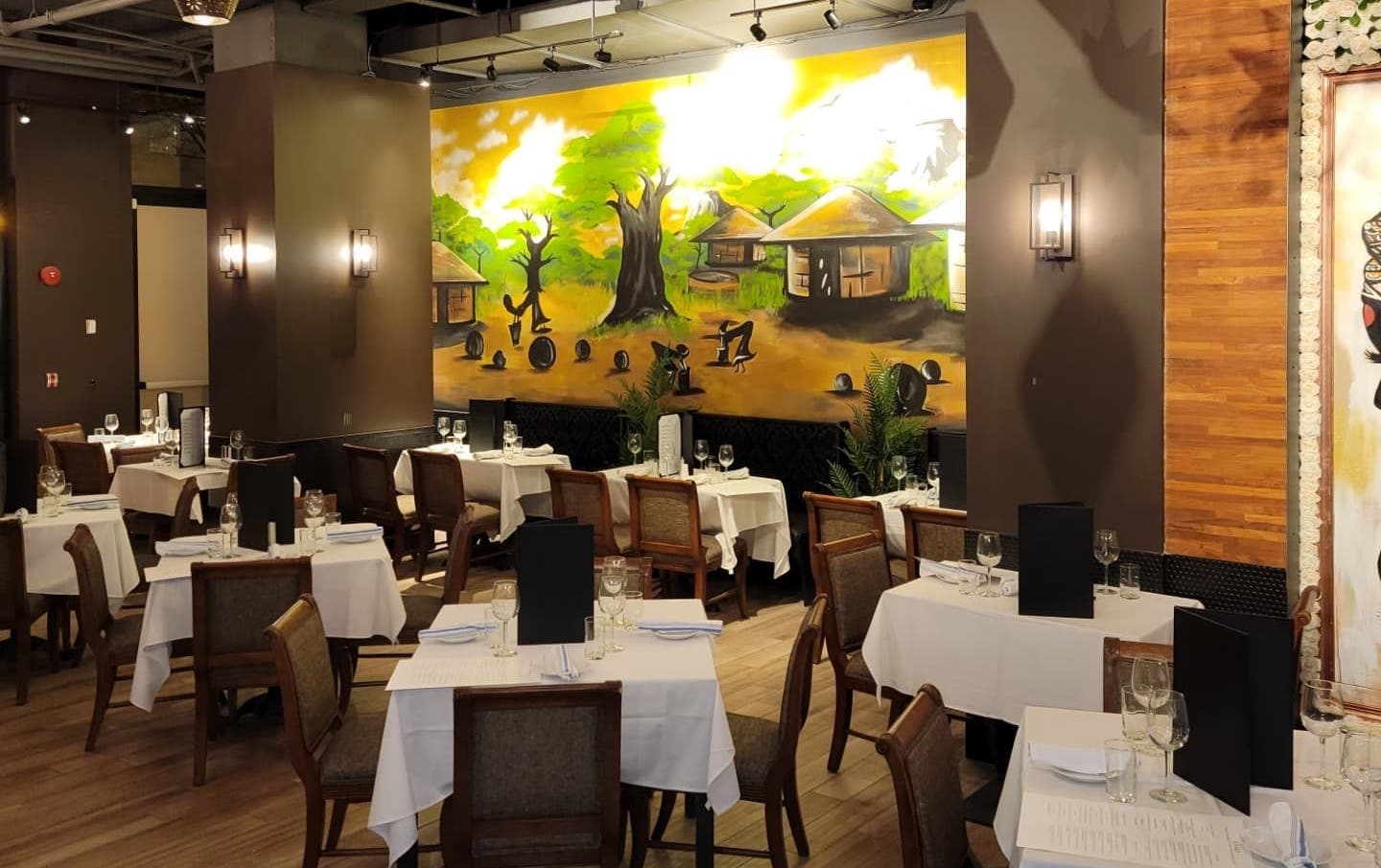The coast of West Africa, from Nigeria to Mauritania, is home to a vibrant array of culinary cultures. While they often overlap and emphasize similar local ingredients, each has its own rich traditions. Three upstart restaurants are transporting diners with tastes of the region.
Hedzole
5505 Colorado Ave., NW
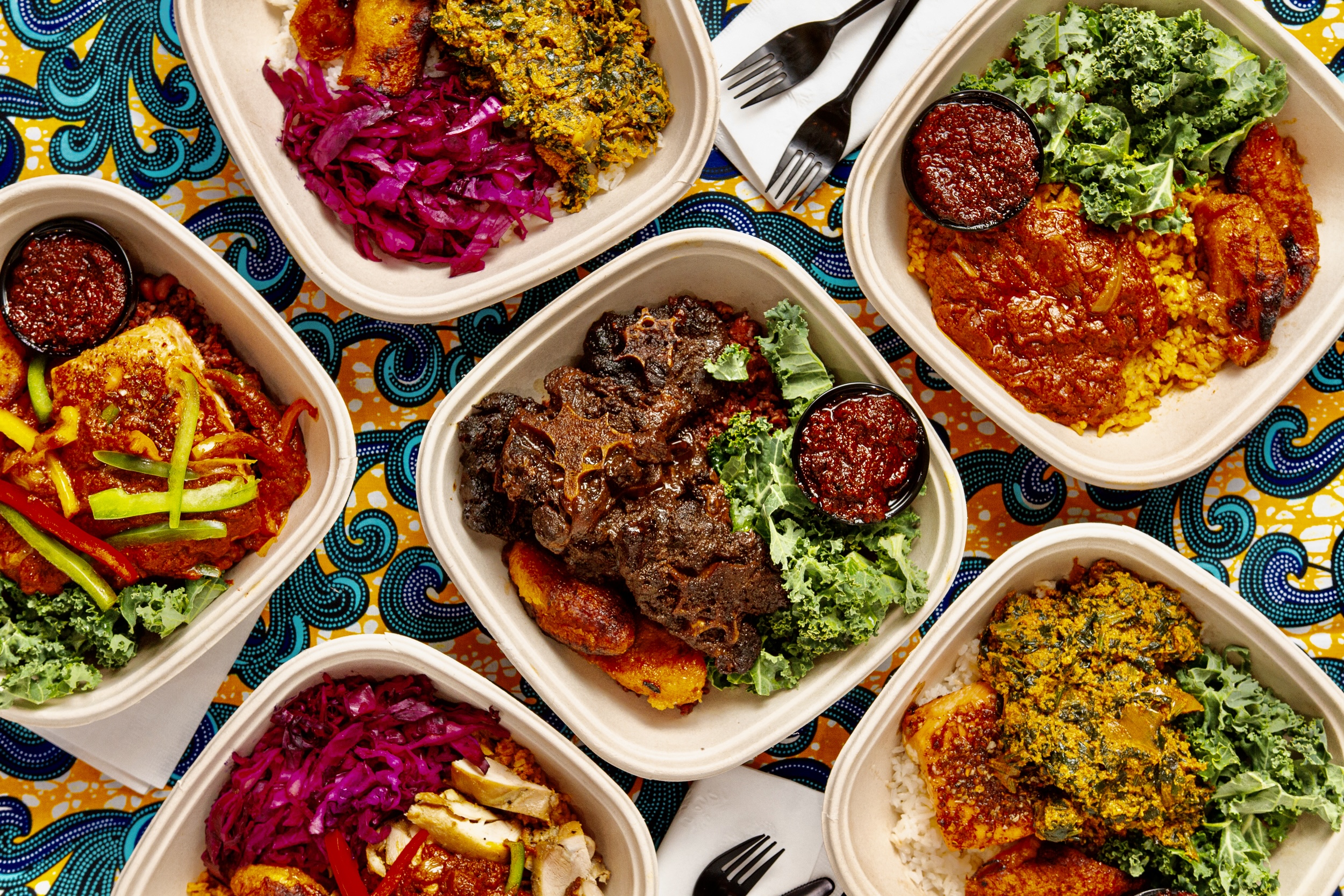
The word “hedzole” (pronounced “hey-joe-lay”) means “freedom” in the Ghanaian language of Ga. For owner Candice Mensah, a second-generation immigrant, it refers to her power to express her combined cultural heritage. “In the United States, there’s a default position on what Black is, and sometimes that overshadows a lot of the nuances that encompass Blackness,” Mensah says. The name also nods to the ability to customize meals at her newly opened build-a-bowl concept in Sixteenth Street Heights. Starting with bases such as jollof rice and the West African ancient grain fonio, diners add a sauce—peppery shito or spinach stew thickened with agushi (ground melon seeds) are favorites—and an optional meat, such as clove-heavy stewed oxtail or adobo-spiced chicken. Aside from the proteins, everything is vegan. Says Mensah: “I wanted to make sure that there weren’t any barriers for folks trying our food.”
Moi Moi
1627 K St., NW
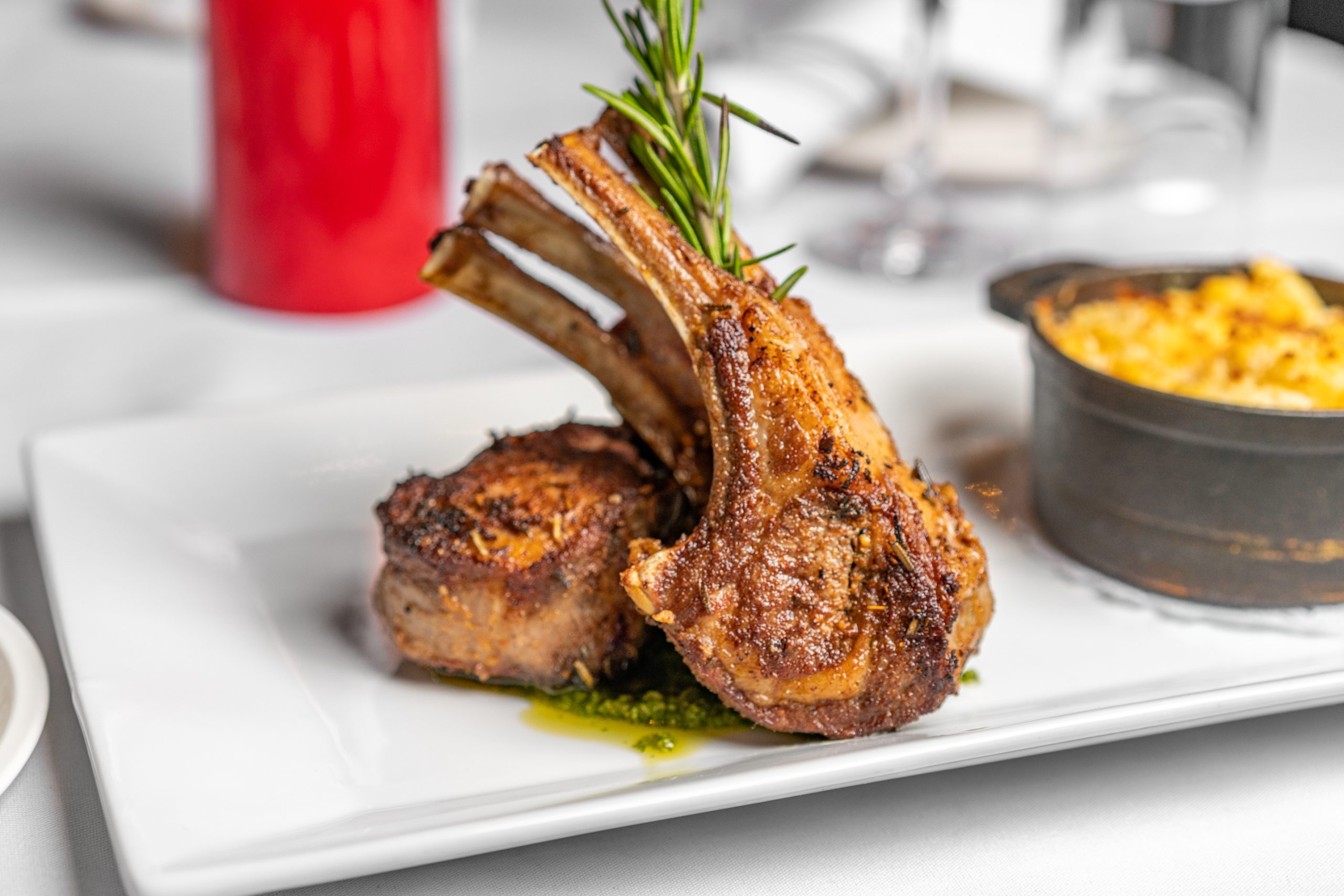
“Eating my food is like taking a history class,” says chef Howsoon “H.O.” Cham. “I’m teaching how Southern cuisine came from foods brought over by people on slave ships from West Africa.” The Gambian native—former chef de cuisine at the upscale soul-food institution Georgia Brown’s—blends traditions from both sides of the Atlantic: strip steak enriched with nutty suya seasoning; berbere-spiced lamb chops and mac and cheese; and flourless chocolate cake with ice cream made from Peak Milk, which he calls “the caviar of canned milk in West Africa.” Cham is also teaching a lesson in how to upend stereotypes around the food of his homeland: “Many people perceive an African restaurant to be a window where you just take a bag of food and roll out. Moi Moi is a white-tablecloth restaurant by the White House.”
Spicy Water African Grill
2019 11th St., NW
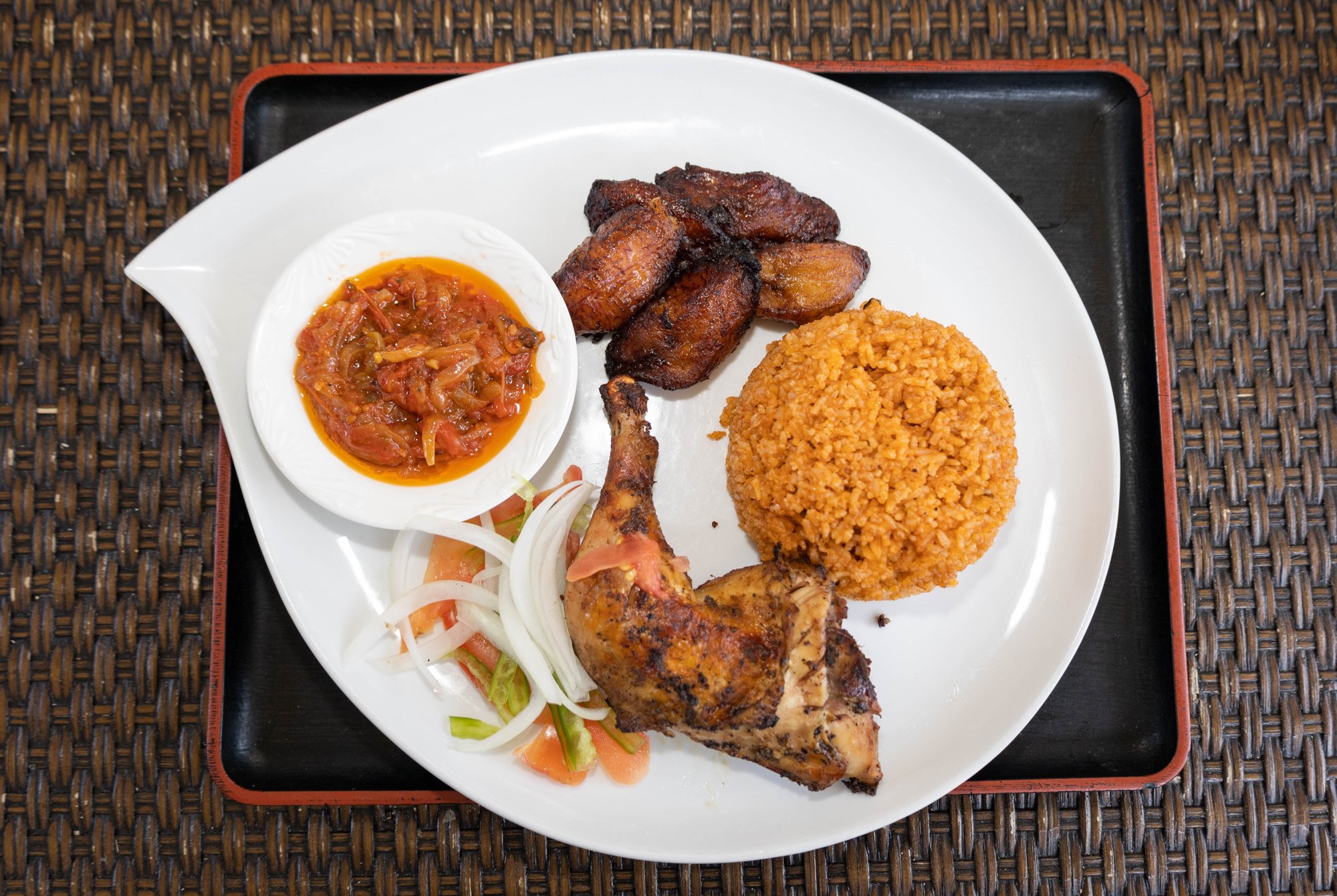
When Duraine Kouassi began mulling a food concept inspired by his roots in Ivory Coast, he sought a familiar vehicle to introduce unfamiliar flavors. Noting the popularity of Peruvian-chicken joints, he focused on garlicky charcoal-grilled chicken—popular street-stall fare Ivorians enjoy after long nights of clubbing.
Kouassi debuted a stall in Eastern Market in 2018, then opened a bilevel brick-and-mortar location in the U Street corridor early this year. His expanded menu includes other grilled meats served in sandwiches and on salads, helping draw Americans curious about West African culture. “It started with Nollywood [Nigerian Hollywood], then Afrobeat took off,” he says. “Now people want to try the food.”
Now that he has diners’ attention, Kouassi is starting to introduce more traditional Ivorian fare, such as tomato-rich jollof rice and the country’s national dish, attiéké—fermented cassava root with the texture of couscous.
This article appears in the July 2023 issue of Washingtonian.

